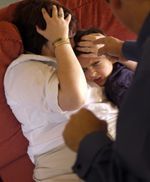DV
.jpg)

Labels: Domestic Violence
.jpg)

Labels: Domestic Violence
 This may not be the sexiest post ever, but court documents have today apparently revealed details of Paul McCartney’s behaviour, and have led me to consider domestic violence (DV). The most shocking statistic I heard about DV was that the average victim will endure 30 – 35 assaults before seeking help.
This may not be the sexiest post ever, but court documents have today apparently revealed details of Paul McCartney’s behaviour, and have led me to consider domestic violence (DV). The most shocking statistic I heard about DV was that the average victim will endure 30 – 35 assaults before seeking help.
*It is worth noting, recent research appears to prove that children are as affected as much by the violence they witness as they are by any which might be inflicted upon them.
Who Are the Victims?
Anyone can experience DV – it can happen in any relationship and for any reason. Over time abuse tends to increase in occurrence and severity. Other members of the household, particularly children, often witness what is happening and may end up being abused, if not physically then emotionally or mentally. DV will not end until someone speaks out – either the victim themselves or somebody - a relative, a friend or a neighbour - who cares about their welfare.
Recognising the Sign
While every DV case is different, there may be telltale signs that indicate abuse is taking place. These include:
1) Unexplained, regular injuries
2) Children truanting / performing poorly at school
3) Low self–esteem of the person being abused
4) Withdrawal of social contact with friends and family leading to isolation
5) Lack of financial independence
6) Loss of control / extreme anger / anti-social behaviour regularly exhibited by the abuser
7) Abuse of animals
The police have a responsibility to investigate incidents of DV and can arrest and charge people who are committing these crimes. Since July 2005, the evidence of the victim is no longer required to pursue a prosecution; the police take responsibility not the victim.
Help for Abusers
My own experience of DV is via the probation service's courses for perpetrators of DV. Help is available for those who are violent, or otherwise abusive, towards their partners. If someone is worried about their own behaviour they can call: The Respect Helpline : 0845 122 8609 and Respect will put individuals in contact with the providers of counselling services.
Labels: Domestic Violence